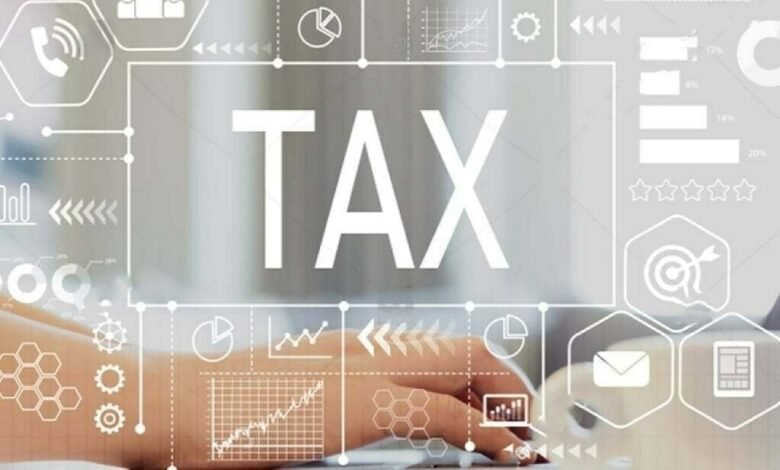10 Ways to Maximize Taxation for Small Businesses In 2023

10 Ways to Maximize Taxation for Small Businesses In 2023? As a small business owner, understanding how to maximize taxation can significantly impact your financial success. With the right strategies in place, you can minimize your tax liability and keep more money in your business.
Organize Your Financial Records
Maintaining well-organized financial records is crucial for maximizing tax benefits. Keep track of all income and expenses, ensuring you have accurate documentation to support your deductions. Utilize accounting software or hire a bookkeeper to streamline this process and ensure compliance with tax regulations.
Take Advantage of Tax Deductions

Small businesses can benefit from various tax deductions available. Familiarize yourself with deductible expenses such as office supplies, marketing expenses, travel costs, and employee wages. Consult with a tax professional to ensure you are taking advantage of all applicable deductions.
Consider Incorporation
Incorporating your business can provide significant tax advantages. It separates your personal and business liabilities, and you may be eligible for lower tax rates or certain tax breaks. Consult with a business attorney or accountant to determine the best legal structure for your business.
Read More: The Evolution of Family Law: Adapting to Modern Challenges
Utilize Tax Credits

Tax credits can directly reduce your tax liability, making them highly beneficial for small businesses. Research and identify tax credits specific to your industry or business activities. Examples include the Research and Development (R&D) Tax Credit or the Small Business Health Care Tax Credit.
Plan for Retirement
Contributing to retirement plans not only secures your future but also offers tax benefits. Consider establishing a Simplified Employee Pension (SEP) IRA or a Solo 401(k) plan. These retirement options provide tax advantages and enable you to save for retirement while reducing your taxable income.
Track Business Expenses

Accurately tracking your business expenses is vital. Use dedicated business accounts and credit cards to separate personal and business transactions. Maintain detailed records and receipts to substantiate your deductions during tax filing.
Explore Section 179 Deductions
Section 179 of the IRS tax code allows small businesses to deduct the full purchase price of qualifying equipment or software in the year of acquisition, rather than depreciating it over time. Familiarize yourself with the requirements and take advantage of this deduction to minimize your tax liability.
Stay Updated on Tax Law Changes

Tax laws and regulations undergo frequent changes. Stay informed about updates that may affect your business. Consult with a tax professional or subscribe to reliable sources of tax information to ensure you are compliant and taking advantage of any new tax-saving opportunities.
Read More: 10 Important Benefits of Estate Planning in the USA
Hire a Professional Accountant
Navigating the complexities of small business taxation can be overwhelming. Consider hiring a professional accountant who specializes in small business tax to ensure accurate filing and to identify additional tax-saving strategies. They can provide valuable guidance tailored to your specific business needs.
Optimize Business Structure
Regularly evaluate your business structure to determine if it is still the most advantageous for tax purposes. As your business grows, you may benefit from restructuring as a different entity type, such as an S Corporation or Limited Liability Company (LLC). Consult with a business attorney or tax professional to explore the optimal structure for your business.
Conclusion
Maximizing taxation for small businesses in 2023 requires a proactive approach and staying up to date with tax regulations. By implementing these ten strategies, you can optimize your tax situation, reduce your tax burden, and ultimately keep more money in your business. Remember, consulting with a tax professional is highly recommended to ensure compliance and maximize tax-saving opportunities.
FAQs
What are some common small business tax deductions?
Common small business tax deductions include office supplies, marketing expenses, travel costs, employee wages, and rent for business premises.
Can I deduct my home office expenses as a small business owner?
Yes, if you use part of your home exclusively for your business, you may be eligible to deduct home office expenses, such as a portion of your rent, utilities, and insurance.
How can I qualify for the Research and Development (R&D) Tax Credit?
To qualify for the R&D Tax Credit, your business must engage in activities that meet the IRS criteria for research and development. These activities typically involve the development of new products, processes, or software.
What are the benefits of hiring a professional accountant for my small business?
A professional accountant can ensure accurate filing, identify tax-saving opportunities, and provide guidance on business finances. They can help you navigate the complexities of small business taxation, saving you time and potentially reducing your tax liability.
How often should I review my business structure for tax optimization?
It is recommended to review your business structure periodically, especially as your business evolves and grows. Consult with a business attorney or tax professional to assess if a different entity type would provide better tax advantages for your specific circumstances.










